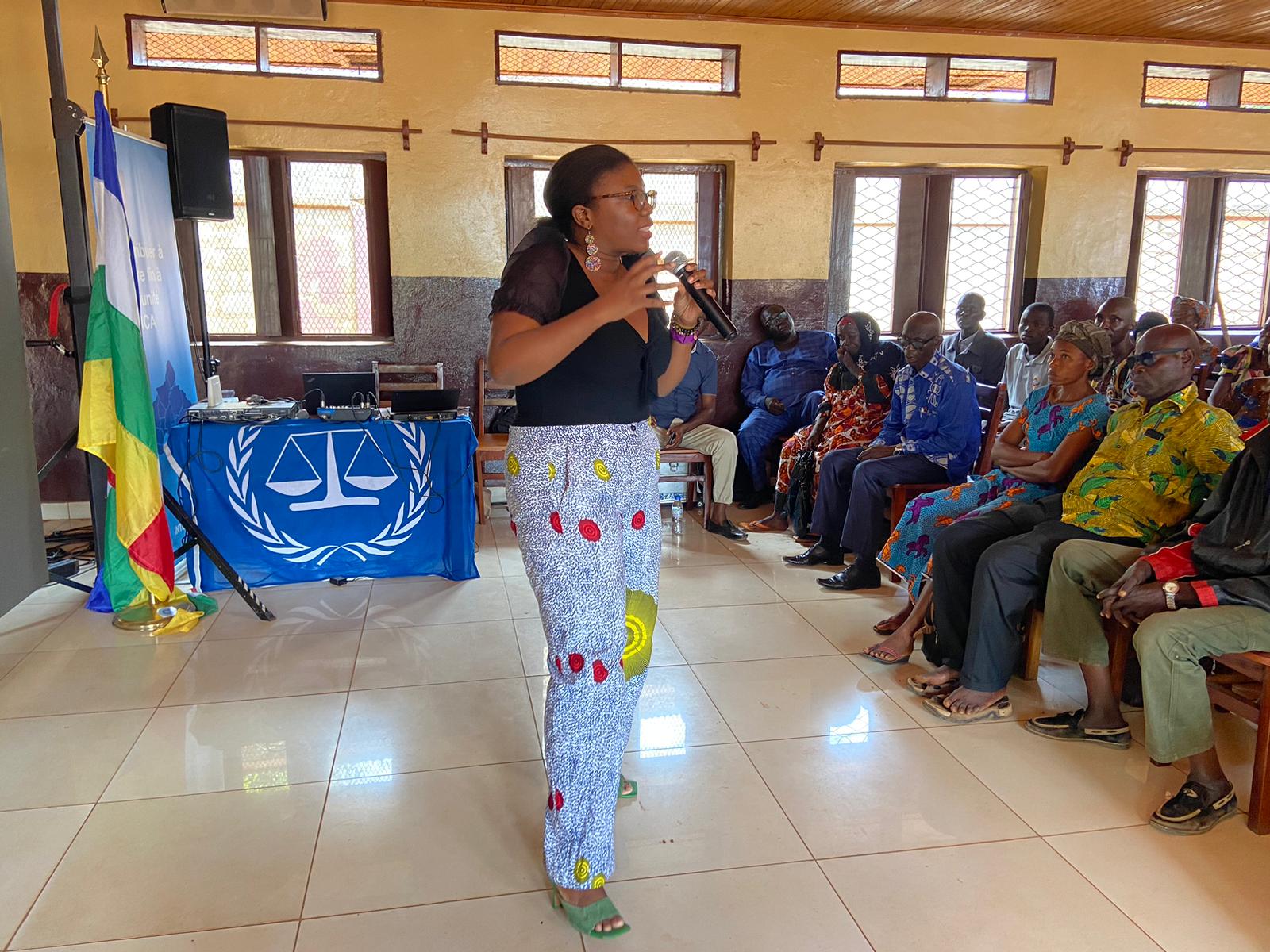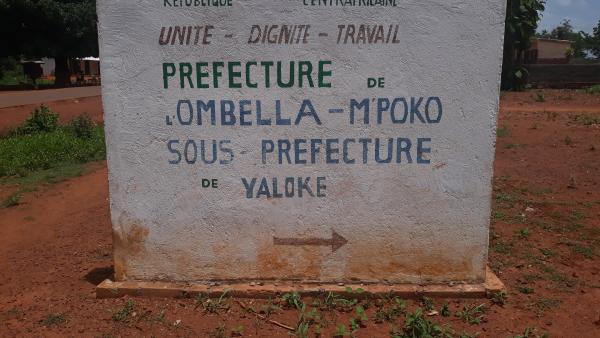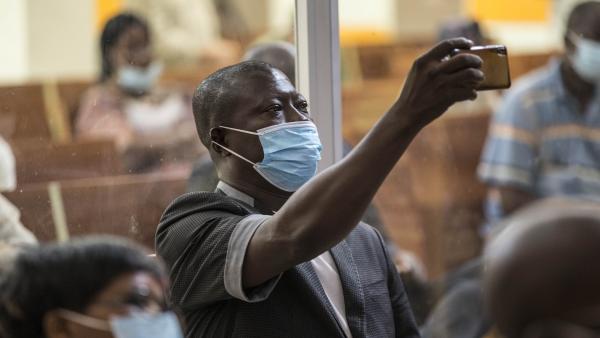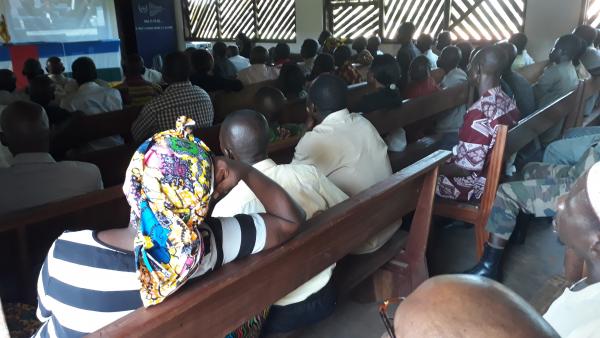
Headphones and camera on
With Charlotte Irigoyen
It is an early afternoon here at the Court’s headquarters in the Hague, the same time as in the country office in Bangui, in the Central African Republic (CAR), thousands of kilometers away. Headphones and camera on, I am about to talk with Maryse and Uziel, the country office’s field assistants, waiting for my video call in Bangui. Being at the headquarters, and with background in public information, I am curious to know more about their day-to-day activities, missions to remote locations like Carnot, Yaloké, Boda or Bérberati, and the direct work with people most affected by crimes.
So far, I have seen first-hand the work behind the scenes in The Hague. Preparations for hearings inside and outside the courtroom begin months in advance. The Court issues media advisories, compiles Q&As and publishes decisions and schedules on the website and digital channels. The aim: to keep the public as well-informed as possible. But the work at HQ is just one part of a larger picture.
When I sit down for the video call, I am reminded of the physical distance between The Hague and the locations where crimes have allegedly been committed. Also, I immediately notice the pixelated videos of my two interview partners, which, come to think of it, also foreshadowed one of the challenges mentioned later in the call: poor Internet connection.
Unsure if they can see and hear me properly, I start with the first question: “How do you prepare for hearings taking place in The Hague?”
Uziel takes the floor first. To my relief, the connection is good and I can hear him well. “The team's work begins well in advance with a technical meeting where we determine who does what, where and when," Uziel explains. “Activities often include radio broadcasts, streaming at the local venues in Bangui and the surroundings, or placement of information billboards across the country”, he says.

When I see pictures of these activities weeks later, I realize how different my imagination, based on Uziel's descriptions, was from reality. The photos show projection screens on the side of the road; a man painting chairs just a few hours before the hearing; and an impromptu newsroom for a roundtable discussion with journalists and justice ambassadors. Proudly, Uziel and Maryse tell me that "they are trying to put all the chances on their side" with the resources they have, to inform communities of what is happening in The Hague.

In some cases, I hear, screenings could even take place at the sites where crimes have allegedly been committed. “Isn’t that difficult for those attending the screening?” I ask.
“It is not the location that has an impact on communities, but rather the evidence that is presented during the hearing. That is difficult”, Uziel says.
Maryse is often not the first to speak, but here, she builds on what her colleague said, adding that - in some cases – locations where alleged crimes have been committed have become a place of reconciliation and a refuge, bringing together the two main religious communities of the country. “Having an event in a place like this means that all communities are able to participate and feel safe”, she explains.

Reaching the communities – was it always a smooth process or were there times when they would hit a roadblock, I wonder. "In any activity, there are not only successes but also failures, and we take them and make them our strengths for the next time", Uziel says. Maryse jumps in, adding that they learned quite a few things along the way. For example, legal Sango is much more complicated than legal French. Also, now they know that the population mobilizes so they will have to “plan for higher turnouts” in the future. “The interest we see during such events confirms the relevance of the activities we organize. An essential part of the work is not only to broadcast the hearings, but also to facilitate exchanges and understanding of the judicial processes”, they tell me.

Field officers invest a lot of their time in raising awareness about the work of the ICC. The office in CAR is no exception. “We get a lot of feedback on the ground about the hearings that take place in The Hague, which is far away from the Central African Republic. People say, 'We don't participate, how is this possible? Why is that?' We get a lot of comments like that: people want to feel involved. And this is an opportunity to really engage and reduce that sense of distance between people affected by crimes and the courtroom”, Maryse says.

Even though it takes hours to reach communities in remote locations like Carnot, Bossangoa or Bérberati, Maryse and Uziel visit them regularly. They meet with communities, broadcast important hearings, talk about victims’ rights, or explain judicial processes and the decisions made by the judges, for example. In these places, where it is difficult to receive and deliver information, the work of a field officer has the most impact. Knowing that communities are equipped with knowledge and have access to information is what makes their work count.


